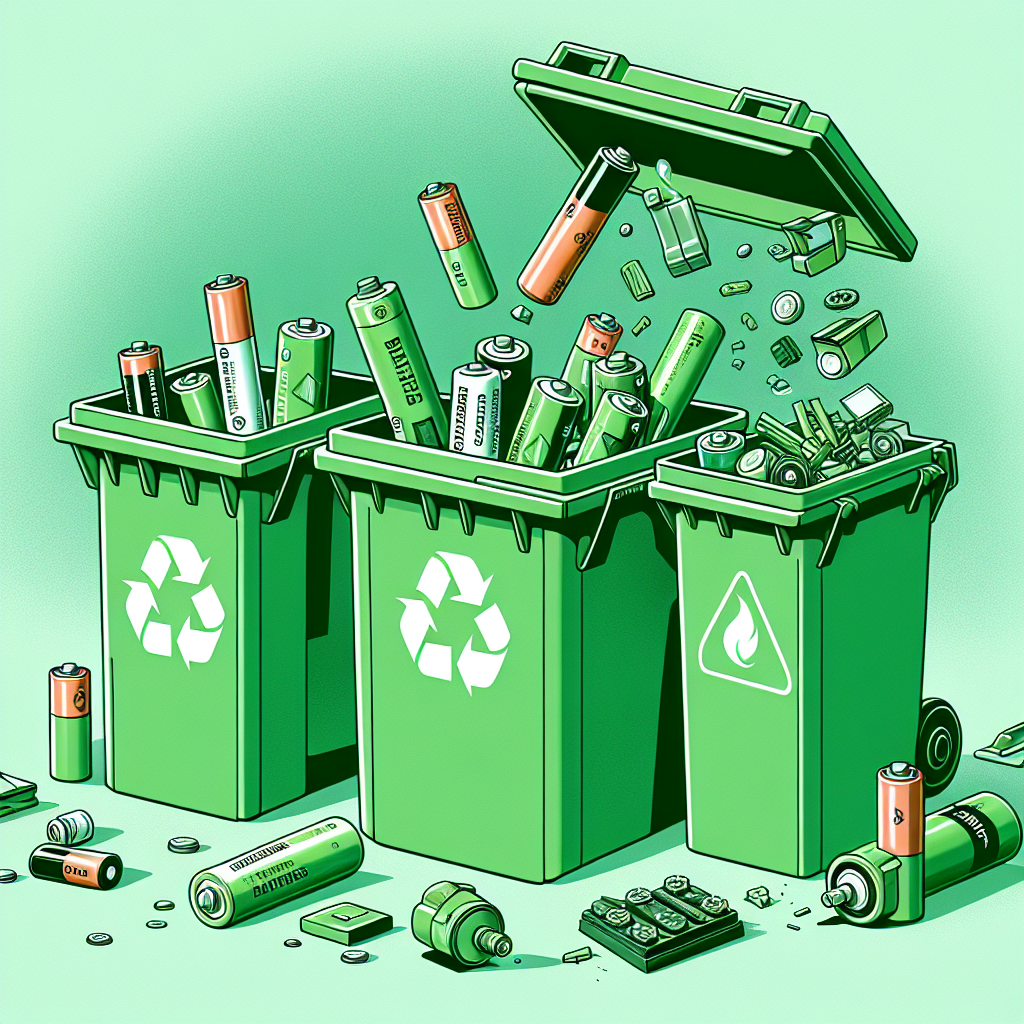Blog Ecobraz Eigre

How to dispose of batteries correctly.
Disposing of batteries correctly is fundamental to protecting the environment and public health. These items contain dangerous chemical substances which, if released improperly, can contaminate soil, water and air. Learn how to dispose of them safely and contribute to a more sustainable planet.
Why is proper disposal important?
Cells and batteries store heavy metals such as mercury, cadmium and lead, which are highly toxic. When disposed of in ordinary waste, these chemical compounds can leak out, causing pollution and endangering the lives of animals, plants and humans. In addition, incorrect disposal makes it difficult to recycle these materials, which could be reused.
The most common types of batteries
Among the most commonly used types are alkaline, nickel-cadmium (NiCd), lithium-ion, lead-acid and rechargeable batteries. Each type requires specific care when disposing of and can be found in remote controls, cars, cell phones, notebooks and various electronic devices.
How to dispose of batteries correctly?
The proper disposal involves handing them in at designated collection points for electronic waste or batteries. Many commercial establishments, electronics stores and supermarkets provide specific containers for this purpose. You can also look for recycling centers or municipal e-waste collection programs.
Some important tips:
- Store correctly: Before disposal, store batteries without direct contact between poles to avoid short circuits.
- Don't throw in regular trash: Never dispose of batteries in household or recyclable trash, as this facilitates the leakage of toxic substances.
- Search for official points: Use apps or environmental agency websites to locate authorized points in your area.
- Avoid opening or breaking: Never try to dismantle batteries, as this can cause accidents and exposure to chemicals.
What happens to batteries that are disposed of correctly?
When sent to appropriate locations, batteries undergo recycling processes that recover metals and other components, reducing the extraction of natural resources and pollution. This reuse contributes to the circular economy and reduces the environmental impacts caused by mining and improper disposal.
Environmental and health impacts of improper disposal
Inappropriate disposal can release heavy metals that contaminate the soil, seep into water sources and harm local fauna and flora. These elements can accumulate in the food chain, posing risks to human health, such as neurological problems, cancer and hormonal disorders. This is why raising awareness about correct disposal is vital.
Conclusion
Disposing of batteries properly is a simple gesture that makes a big difference to the environment and public health. Find out about collection points in your city, store this waste safely and never throw it in the general waste garbage can. With small attitudes, everyone can contribute to a cleaner and more sustainable planet.

Deixe um comentário
O seu endereço de e-mail não será publicado. Campos obrigatórios são marcados com *